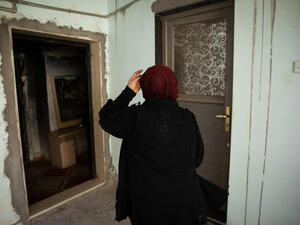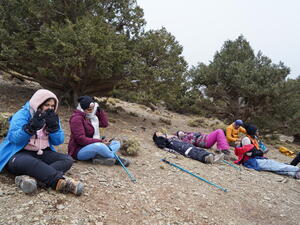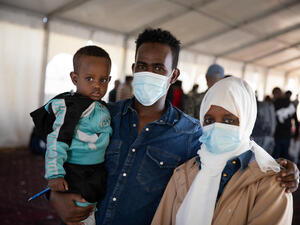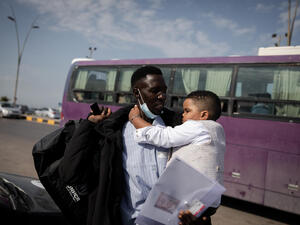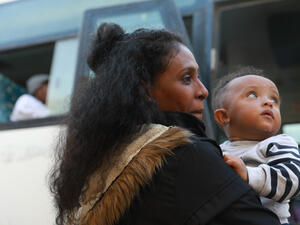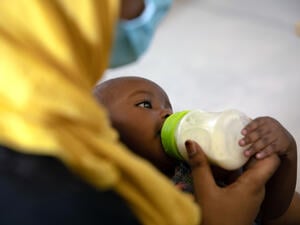Libya
Libya
An estimated 1.3 million people are in need of humanitarian assistance in Libya. Hundreds of thousands of people across the country are suffering. They are living in unsafe conditions with little or no access to health care, essential medicines, food, safe drinking water, shelter or education.
Our overall objective in Libya is to improve protection and life-saving assistance to displaced people, refugees and asylum-seekers and host communities. This includes supporting local public services which benefit the whole community, such as hospitals and schools.
The country presents a complex displacement scenario with 217,002 people displaced inside the country (IDPs) and 278,559 people who have returned home (returnees). Supporting IDPs is a priority for us and we provide them shelter kits, core relief items and cash assistance.
We are using Quick impact projects (QIPs), which are small and rapidly implemented projects, to help support those in need of help. Together with the communities and partners we identify suitable projects to implement, mainly within the health, education, shelter or water and sanitation sectors.
Libya also hosts 43,113 refugees and asylum-seekers who are registered with UNHCR. Refugees are travelling alongside migrants through dangerous routes towards Europe. Up to 90 per cent of people crossing the Mediterranean Sea to Europe depart from Libya.
Our work at disembarkation points focuses on providing life-saving assistance to people and protection monitoring to identify those in need of international protection, such as unaccompanied and separated children, elderly people, medical cases, women at risk or victims of trafficking. We have access to 12 disembarkation points in western Libya and have upgraded reception conditions to meet the immediate basic needs of refugees and migrants (health posts, water and sanitation facilities and shaded areas to protect refugees and migrants from the elements).
In urban areas we work in community development centres and we use telephone hotlines and outreach visits to help identify, register and assist people in need of our protection.
We are working to end the detention of refugees and asylum seekers in Libya. We are also advocating for alternatives to detention, including care arrangements for children and family tracing. At the detention centres we provide humanitarian assistance and advocate for enhanced access to screening, identification and registration.
We continue to seek durable solutions such as resettlement, family reunification and voluntary repatriation, for refugees and asylum-seekers, giving particular attention to the most vulnerable. We are planning to significantly scale-up our capacity for refugee status determination, resettlement and evacuations to third countries in order that we can help as many people as possible.
Numbers updated 23 October 2017
Additional information
For information about our work in Libya:
For up-to-date information about our programmes and operations in Libya, including funding level and donor contributions, visit Global Focus, UNHCR's reporting portal.
For legislation, case law and UNHCR policy relating to claims for international protection, visit Refworld.




